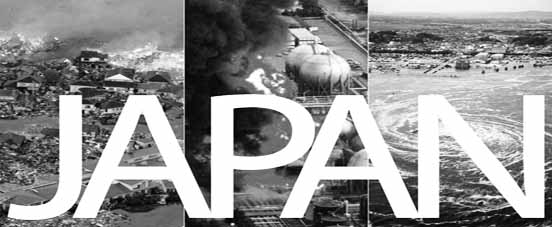- Articles ›
- Operations and IT ›
- Disaster Management in Japan: Fighting a Colossal Tragedy Articles
Disaster Management in Japan: Fighting a Colossal Tragedy
On many occasions people are prepared for and ready to face issues and problems which might possibly come their way. Equipment, technology and resources are kept as a back-up plan in case there is a crisis. There are certain cases where things are simply beyond your control. As far as being prepared for such tragic circumstances, governments and organisations are prepared with disaster management. But the tragedy which struck Japan, is a tremendous challenge for the world, to restore life again.

The huge catastrophe that struck Japan in 2011 with an earthquake measuring 8.9 accompanied by 10-metre tsunami waves created devastation and destruction of unprecedented levels. The natural adversity gave no time for any preparation to the authorities even to shell out a warning to its citizens. And a sudden impact swept away the entire north-eastern coastline of Japan. Huge tidal waves swept away cars, buses, ships, boats and even houses. Over 4 million buildings were damaged, electricity supply cut and drinking water pipes were destroyed. Such huge was the impact of this natural disaster that Japan’s nuclear power plants were shut down so as to prevent any radiation leakage. The . A calamity of such tremendous proportions requires disaster management of the highest level. And in such a case, the authorities are as helpless as the citizens themselves.
Disaster management is being prepared for unforeseen circumstances. Disaster management includes managing resources and providing basic amenities to citizens in case of rain-floods, natural calamities, accidental tragedies etc. But to fight the disaster that occurred in Japan with the destructive earthquake, global efforts would be required to restore normalcy.
The most important priority in managing the after effects of such a huge tragedy would be to find people who are alive and stuck in destroyed debris. The authorities’ alongwith international support, armed forces and with the help of civilians should consider rescue operations as the top most priority. Evacuation of people living in precarious areas should also be undertaken so as to prevent further loss of lives. All these things are easier said than done, but should be on the priority list of the disaster management authorities.
Another priority and challenge would be to provide food, drinking water and shelter to millions who have become homeless by this devastation. With the help of international aid, help from armed forces and surrounding areas, it would be the responsibility of not only the Government but of every individual to help in tackling this catastrophe. Also, providing medication to the injured and avoiding the spread of an epidemic would require tremendous efforts from the disaster management teams. Communication systems, electricity and power supply are another set of major issues which need to be tackled simultaneously.
Still Japan was highly well equipped to fight such earthquakes. It is being said that if such quake would ahve struck any other south asian country which wasn't as equipped as Japan, the aftermath of earthquake would have been catastrophic.
Restoring infrastructure, making roads, getting businesses are minor issues as compared to human life. Due to this calamity financial losses may reach figures of a billion dollars, but restoring normal life would be the biggest challenge facing the government and disaster management teams.
No matter how much progress a nation makes, no matter how many differences are their amongst neighboring countries, no matter how different people are, there are times when the entire human race needs to become one. And to fight the enormous tragedy of this magnitude, it would require not only international aid and disaster management, but also .
The article has been authored by the editorial team. The content on MBA Skool has been created for educational & academic purpose only.
If you are interested in writing articles for us, Submit Here
Share this Page on:
What is MBA Skool?About Us
MBA Skool is a Knowledge Resource for Management Students, Aspirants & Professionals.
Business Courses
Quizzes & Skills
Quizzes test your expertise in business and Skill tests evaluate your management traits
All Business Sections
Write for Us